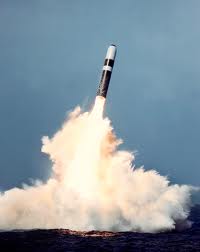Alan Mackinnon, secretary of Scottish CND & Scottish Committee member of the Communist Party, argues that the campaign to reject Trident needs to keep up the pressure both north and south of the border in 2014. This article first appeared in the Morning Star 20/01/2014.
Last month a report from the House of Commons defence select committee highlighted the stark choices facing British defence and foreign policy.
The report noted the growing lack of public support for the expeditionary role of Britain’s armed forces in the form of “general public opposition to the war in Iraq, and questionable support among the electorate for current operations in Afghanistan.”
 It was a recognition that the lessons of the disastrous wars in Iraq, Afghanistan and Libya and, more particularly, the perceived failures of British military operations in Basra and Helmand provinces, had been learned.
It was a recognition that the lessons of the disastrous wars in Iraq, Afghanistan and Libya and, more particularly, the perceived failures of British military operations in Basra and Helmand provinces, had been learned.
It was that power of public opinion, built and consolidated over years of anti-war campaigning, that ultimately stopped military intervention in Syria and triggered a U-turn in US policy in the region.
In a reference to the declining size and capability of Britain’s armed forces, the same report introduces the concept of loss of “fighting power” and laments the “strategic shrinkage” which this represents.
Former US defence secretary Robert Gates, who served in the George W Bush and Obama administrations, also regretted the loss of Britain’s “full-spectrum” capability and argued that it would be a less effective ally in future US-led conflicts.
According to Max Hastings in the Telegraph last year, the British army, currently being downsized to 82,000, will soon “be capable of deploying only a single battlegroup of 7,000-8,000 men for sustained operations overseas.”
In a look ahead to the next Defence and Strategic Review, the defence committee report notes the US strategic “pivot” to Asia — the shift of 60 per cent of US global military forces to the Asia-Pacific region as part of a policy of encirclement and containment of China.
The report anticipates that Europe will be expected to “take on greater responsibility for its own security” without specifying what or who threatens that security.
All of this means choices. Britain can no longer maintain “full-spectrum” armed forces capable of operating anywhere in the world in support of the United States.
There is little public support for such a role and we can no longer afford it.
According to Professor Malcolm Chalmers of the Royal United Services Institute, by the end of this decade spending on Trident will swallow around 35 per cent of defence equipment spending for a period of 10 years or more, squeezing out other big-ticket items like new aircraft, new warships and protective equipment for soldiers.
Small wonder, then, that a defence traditionalist like James Arbuthnot, former Tory defence minister and chair of the House of Commons defence committee, has added his voice to the growing number of senior political figures and armed forces personnel who are sceptical about the “value” and affordability of Britain’s nuclear weapons programme.
In a recent interview with the Guardian newspaper he said that he was no longer convinced it was appropriate to replace Trident. In a comment meant to scuttle one of the key pro-Trident arguments, he argued: “It’s not an insurance policy, it’s a potential booby trap.”
But the choice is not just between nuclear and conventional weapons.
It is between weapons which project power and fear across the world — like nuclear weapons and aircraft carriers — and can fight wars thousands of miles away, and much simpler and cheaper ones which can defend Britain’s land and territorial waters.
 It is, in other words, a choice between offence and defence.
It is, in other words, a choice between offence and defence.
And there is no weapon more offensive than Trident. Twenty-fourteen will be a crucial year for the anti-Trident campaign.
It is the year of Scotland’s referendum on independence.
A Yes vote would provide new opportunities to scrap the system, but no guarantee that a Scottish government would withstand the overwhelming pressure to reach some kind of leasing deal for the short to medium term.
The SNP determination to join Nato would be a complicating factor. Nor does a Yes vote look likely as opinion polls stand.
All the more reason, then, to keep all options open and to keep the focus on the Westminster government where the ultimate decision on Trident will be made.
The following year will see a UK-wide general election and the year after that, 2016, is when the “main gate” decision on Trident will be made.
Changing Labour Party policy in an election year will be very difficult, so it will be in 2014 that the groundwork must be done.
And there is growing support for that within the ranks of Labour and signs that Labour’s leaders may be beginning to lose their 30-year-old fear of being seen as soft on defence.
A Labour campaign which proposed scrapping Trident and spending the money on jobs, services and renewable energy could be a big vote winner. In Scotland, and across Britain, there is much to play for.
Reblogged this on Young Communist League Scotland.